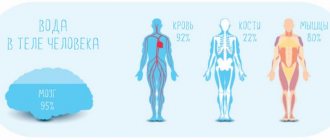Sleep pills are best used in conditions of severe stress or tension, when it is simply impossible to fall asleep on your own. Insomnia is not taken seriously by many and is a reason for jokes, however, it is a serious disorder that can lead to unpleasant consequences. Sometimes sleep disturbances occur as a result of severe stress or overwork and go away after the next weekend, when the person rested and relaxed. But often a temporary problem with sleep becomes the beginning of a chain reaction, leading to real insomnia and a nervous breakdown, which require not just pills for good sleep, but real full-fledged treatment.
Why is insomnia dangerous?
Let's look first at the source of the problem and then at possible solutions. Upon closer examination, the mechanism for developing a big problem from a small lack of sleep seems quite obvious. Sleep is necessary to restore the functionality of the nervous system. If at a certain moment something arises that interferes with normal sleep, then the person will not be able to rest properly. His performance will decrease, his mood will be depressed, as a result of which the situation may worsen. And this will cause increased sleep problems. Man is designed in such a way that in most cases this problem resolves itself in the end. But these days, the pace of life has accelerated and tension has increased.
Most of us rest little and incorrectly, but work a lot (and also incorrectly). We are in a situation of constant stress: at work they constantly demand something from us, relationships with loved ones are not easy, given our constant nervousness and irritability. As a result, any unexpected stress threatens to develop into chronic fatigue and become a self-sustaining system.
Tension causes poor appetite and eating disorders. This also contributes to lack of sleep. Without enough sleep, we do not have time to complete all the necessary work on time, which entails increased tension and even greater stress. It leads to increased sleep and eating problems. As a result, we either begin to correct the situation, or sooner or later we develop a serious disease, which takes away our already valuable funds and shortens our lives.
Drinks that are bad for sleep
There are drinks that, on the contrary, prevent you from falling asleep or, if you manage to fall asleep, make your sleep restless and interrupted.
Alcohol
If you fall asleep after actively drinking alcohol, then sleep will not bring relief - in the morning you will have a headache, feel general fatigue, plus all the “delights” of a hangover. This occurs, in particular, due to depression of the nervous system. In addition, alcohol affects sleep structure.
Although if you use alcohol in medicinal doses, for example, a dessert spoon of cognac at night, it can help you fall asleep, besides, almost all medical tinctures, including those for insomnia, are made with alcohol.
Carbonated drinks
Constant consumption of carbonated drinks, especially at night, leads to chronic lack of sleep. In addition, they cause fermentation in the stomach and intestines, which also makes sleep restless.
Strong tea, coffee
Strong tea and coffee contain a lot of caffeine, which prevents the body and nervous system from relaxing and falling asleep, and sleep rhythms are also disrupted. Therefore, drinking these drinks at night is not recommended.
Do athletes suffer from insomnia?
On the one hand, physical activity qualitatively improves our lives and contributes to a healthier situation. Regular physical activity activates metabolic processes, provides a release of negative energy, strengthens the will and gives us healthy fatigue, which helps us fall asleep.
On the other hand, if a person does not just run in the morning, or do exercises, and play football with the children on the weekend, but trains intensively, trying to achieve the desired results, then this introduces considerable new loads and new stress into life. Thus, even an athlete can, as a result of an unfortunate combination of circumstances, get chronic insomnia, which will give him all the same problems that we talked about earlier.
Drinks that affect sleep quality
Almost all drinks affect sleep to some extent - positively or negatively. Stimulants - coffee, tea, alcohol - should be taken no later than three hours before bedtime, and if a person is prone to insomnia, then more. But drinks that have a calming and relaxing effect on the psyche and body can be drunk immediately before bed.
You don’t need to drink a lot of any drinks at night, even against insomnia - going to the toilet will not have the best effect on your sleep.
How to treat insomnia?
Depending on the severity of the situation and the availability of various treatment methods for a particular person, the easiest and most neutral remedies are offered: herbal decoctions and infusions, psychological means of rehabilitation, a variety of relaxing procedures (from sauna to massage), systematization and improvement of nutrition, walks in the fresh air air, etc.
As more serious means, various sleep-improving drugs are used, ranging from complex remedies based on herbal components, and up to synthetic sleeping pills prescribed by a doctor.
If you think that your sleep difficulties are the result of temporary overwork or stress, and do not require medical intervention, then you can try taking a short vacation and try to improve the situation by using known relaxation techniques and over-the-counter sleep pills, which can be purchased at the pharmacy or The sports nutrition store is completely free. For example, such as Sleep Formula from Be First - a product based on plant extracts (valerian, chamomile, passionflower, lemon balm, griffonia seeds).
Insomnia: causes and treatment
Insomnia (insomnia) is a sleep disorder in which a person cannot fall asleep, fully relax and regain strength. According to global medical statistics, more than 35% of women and almost 30% of men suffer from this disease. Insomnia is diagnosed less frequently in children—about one in four.
Many patients do not pay attention to the disease or try to cope with it on their own. As a result, a persistent sleep disorder develops - chronic insomnia, which is difficult to treat and causes many health problems. If such a disease is present, the patient should seek an initial consultation with a general practitioner.
What is considered insomnia?
A healthy person needs at least 6–10 hours of sleep per day for proper rest. During this time, the body recovers, the brain processes the information received during the day. The period of falling asleep takes no more than 15 minutes.
It is impossible to go without rest for more than 200 hours. If there is insufficient sleep, a person feels a loss of strength and irritability. With chronic lack of sleep, a decrease in immunity, lethargy, and the development of mental disorders are possible.
Insomnia is a violation of not only the quantity, but also the quality of sleep. Even when very tired in the evening, a person goes to bed and tries for a very long time to find a comfortable position and relax. Sleep becomes intermittent. In the morning, a patient with insomnia still feels tired. The diagnosis of insomnia is made when there are three or more episodes every week for a month.
Causes of pathology
There are many factors that can affect sleep.
Among the main causes of insomnia:
- genetic predisposition;
- taking certain medications;
- alcohol abuse;
- overeating before bed;
- dysfunction of the thyroid gland;
- depression, neurosis;
- increased emotional excitability;
- unfavorable environmental conditions when falling asleep: cold, heat, hard mattress, etc.;
- parkinsonism, other neurological disorders;
- arthritis, arthrosis, pathologies with severe pain;
- kidney and bladder diseases that cause frequent urination;
- restless legs syndrome.
Occasional insomnia may occur due to flights between time zones or changes in work schedule (for example, night work). After eliminating the provoking factor, rest is restored.
The cause of insomnia in women is often menstrual irregularities, pregnancy or the onset of menopause.
Elderly patients and people in difficult life situations are also at risk.
Types of insomnia
According to the type of provoking factors, insomnia is:
- Adaptive. Symptoms of insomnia appear against the background of severe stress, for example, moving to a different climate zone. Adaptive insomnia does not require serious treatment and can resolve on its own within a few weeks.
- Psychophysiological. The patient is afraid in advance that he will not be able to sleep. By evening, the tension intensifies, fear grows.
- Idiopathic. Insomnia develops from childhood. Often it is not possible to determine the exact cause of the violation.
- Behavioral. This type of insomnia usually affects young children who are accustomed to certain rituals. For example, if a child who has always been rocked to sleep is simply put in a crib, he will be capricious and spin for a very long time. Behavioral insomnia can be observed during the period of weaning the baby from the breast or pacifier.
- Due to mental disorders. More than 70% of cases of insomnia are diagnosed in patients with diseases of a psychoneurological nature.
- Due to poor sleep hygiene. The cause of insomnia is a person’s inattention to his daily routine, work and rest schedule. Coffee before bedtime, bright noise and light are also provoking factors.
- Caused by a somatic disease. The cause can be any health problem: abdominal pain due to gastritis, apnea, cough due to bronchitis, etc.
- Pseudo-insomnia. A person’s sleep remains normal in both quality and duration, but the patient feels sleep deprived. It seems to him that he rested less time than actually passed.
Depending on the duration of manifestations, insomnia can be:
- Transitional. Sleep disturbances are short-term, lasting several days. Transient insomnia is caused by environmental changes, such as moving or depression.
- Spicy. Sleep disturbances are regular, but last no more than a month. Acute insomnia is often associated with stress. Patients experience difficulty falling asleep, sleep becomes short and intermittent.
- Chronic. Insomnia lasts for several months and is provoked by various factors. Patients note periods of deterioration and improvement of their condition.
Symptoms of insomnia
Sleep disorders cannot be confused with another disease. At night a person cannot rest, and during the day he becomes distracted and irritable. I want to sleep all the time. Insomnia does not allow you to concentrate on performing job duties and causes a loss of motivation. Additionally, it is possible to develop headaches and digestive disorders.
Insomnia in children
Children's bedtimes vary greatly. One child needs a long rest, while another needs 6 hours to feel full of energy. If the children are active and cheerful, then doctors recommend not to worry. Both options can be considered the norm - both long and short sleep.
As your child gets older, he or she may sleep less and less. A cause for concern should be the child's moodiness, irritability, and his active reluctance to go to bed in the evening. Nervousness makes sleep “ragged”. The child does not sleep well and does not allow his parents to rest.
It is important not to miss the first manifestations of insomnia, when children's sleep is still quite easy to correct. To do this, the process of preparing for a vacation must be made pleasant and relaxing. You can give your child a bath, give him warm milk, or allow him to take his favorite toy to bed. Don’t insist on napping during the day if your baby doesn’t want to, and don’t let him fall asleep early in the evening: distract him with a book, cartoons, or a walk.
You should not go to bed with your child and wait for him to fall asleep. If spending time together becomes a habit, it will be difficult to get rid of it. Ignore the whims, gently but persistently put the child to bed alone, and over time he will learn to fall asleep on his own.
Diagnosis of insomnia
When the first problems with night rest appear, you need to make an appointment with a doctor. To diagnose insomnia, a special assessment technique has been developed - the Epworth scale. With its help, the severity of symptoms is assessed and treatment is prescribed. It is also important to determine the cause of insomnia in a man or woman and eliminate the factor.
At the first consultation, the doctor collects anamnesis. Finds out how long ago sleep problems began and what factors could provoke them. The patient is recommended to keep a special diary. Every day, the time of falling asleep and waking up, the number of sleep interruptions during the night are entered into the notebook. The patient should describe his feelings in the morning. Based on the diary information, the doctor assesses the quality and duration of sleep. Data are also needed to select appropriate treatment.
An alternative to a diary is the actigraphy procedure. The patient is given a special measuring device that must be worn on the wrist for a week. Actigraphy is performed on an outpatient basis.
If insomnia is caused by any disease, diagnostics are prescribed to determine the root cause. Treatment of the underlying pathology eliminates sleep problems.
Treatment of insomnia
It is important not to self-medicate. Uncontrolled use of sleeping pills and any other medications, at best, will not bring the expected result, and at worst, it will provoke side effects. Insomnia will progress, and medications will negatively affect your overall health. Be sure to see a doctor.
Treatment of insomnia is comprehensive, including consultations with related specialists, medication and other auxiliary methods.
Psychotherapy
The doctor helps to overcome crisis situations, cope with neuroses, stress, and apathy. A course of psychotherapy includes several sessions at the discretion of the specialist.
One of the treatment methods is hypnosis. The technology is used for severe disorders.
Paradoxical Intention Technique
A special treatment method aimed at changing perceptions (cognitive reframing technique). The patient is advised not to think about sleeping at night, but, on the contrary, to make every effort to stay awake. The method is effective in most applications.
Drug treatment
There are many medications available to improve sleep quality. The medicine is selected individually, taking into account the patient’s health status, severity of symptoms, and lifestyle. Proper treatment should help normalize sleep, but not create serious side effects or interfere with daily activities.
More often, doctors opt for herbal-based drugs. Medicines have a cumulative effect and are not addictive. Synthetic sleeping pills are taken in strictly calculated dosages and for a limited period. In most cases, depressants are prescribed (Doxepin, Amitriptyline and others). The drugs have a quick calming effect, help regulate sleep, and exhibit antiadrenergic, antihistamine, and anticholinergic properties. Antidepressants promote sleep and increase the overall duration of rest.
It is possible to prescribe medications based on melatonin, a sleep hormone. The medicine is effective against chronic insomnia, especially in older people. The drug is prescribed for 3 weeks, after which it is necessary to take a break.
Important: hormonal drugs have many contraindications. For example, Melatonin should not be prescribed to pregnant women and teenage girls. In each case, taking medications must be agreed upon with a gynecologist.
Massage
Reflex massage has no contraindications, and you can do it yourself. Just 15-20 minutes before bedtime will help improve the patient's condition. There are various massage techniques that are aimed at stimulating biologically active points on the ears, neck, abdomen, and feet.
Breathing exercises
Rhythmic inhalations and exhalations stimulate blood circulation in the brain tissues and improve the functioning of internal organs. Breathing exercises are good for helping older people cope with insomnia, but even children can easily master simple exercises. It is important that the classes are enjoyable and do not create additional stress. The doctor will select a set of exercises.
The patient needs to remember that breathing should be done through the nose with a short and strong inhalation and a long exhalation. You can mentally keep count so that the exercises are rhythmic.
Spa treatment
Regular courses have a beneficial effect not only on sleep, but also on the overall health of a person. It is recommended to relax in sanatoriums at least once a year. At the institution, patients follow a sleep schedule, receive a set of therapeutic and restorative procedures, undergo courses of massage, herbal medicine, mud baths, etc.
Prevention of insomnia
In most cases, insomnia can be eliminated at the first manifestations and prevent its recurrence. It is necessary to think over a daily routine in which at least 8 hours are allocated for sleep.
The following actions will help reduce the symptoms of insomnia:
1. Go to bed at the same time every day. Many people find warm tea, a bath with herbs, or their favorite pajamas to help them relax—you shouldn’t break your usual rituals.
2. Stop drinking alcohol and smoking. Alcohol may have a short-term sedative effect and speed up sleep, but it has a negative effect on the deep sleep phase. A person may suddenly get up at night and will no longer be able to sleep.
3. Avoid coffee or keep it to a minimum. Caffeine can stay in cells for 24 hours. Undesirable substances are also contained in chocolate and strong tea. You can eat such foods only in the morning.
4. Read the instructions for medications carefully and consult your doctor. Many over-the-counter medications taken for colds or headaches contain ephedrine. The substance has a stimulating effect on the body. If a medicine affects your sleep, ask your doctor to change your dosage or try a different medicine.
5. Don't overeat before bed. A full stomach will work all night and send signals to the brain, leaving you feeling tired in the morning. To satisfy your hunger, you can drink a glass of kefir, milk or a cup of herbal tea.
6. Take a warm bath. Some people benefit from water procedures 2 hours before bedtime, some - just before going to bed. Time is determined individually. You can add flavored foams and herbal infusions to the bath.
7. Do exercises in the morning. A few simple exercises will help you tone up and provide moderate physical activity. Regular exercise helps you fall asleep better in the evening.
8. Practice good sleep hygiene. The room should be dark, quiet and fairly cool - +15...+18 °C. It is better to choose a mattress that is dense, but not hard, on which the body feels comfortable. Some people find it difficult to fall asleep in silence; they use “background” noise, for example, turning on the air conditioner or soft instrumental music.
9. Avoid long naps during the day. Short periods of rest of 20 minutes will have an invigorating effect on the body, but longer naps during the day contribute to insomnia.
10. Contrary to the stereotype, you shouldn't count sheep. When a person is focused on any action, active processes occur in the brain that interfere with sleep.
Diagnosis and treatment of insomnia in Moscow
The MedEx Personal Medicine Clinic invites you for a consultation on the causes and treatment of insomnia. Experienced doctors will help you find solutions in the most difficult cases. Call us to make an appointment with a neurologist.
The mechanism of action of tablets for good sleep
Normal sleep is a complex psychophysiological process in which many different factors are involved. It is regulated by hormones such as melatonin, requires activation of inhibitory receptors of the central nervous system, with the help of substances such as GABA, involves calming, reducing tone and slowing down the activity of the cardiovascular and respiratory systems, etc.
That is why complex preparations that make up sports nutrition for sleep, combining the effects of various ingredients, show good effectiveness. In particular, some components have a sedative, calming effect, others normalize the level of dopamine and serotonin, providing the necessary level of psychological comfort and relieving anxiety and restlessness, others stimulate the production of melatonin, others calm the nervous and cardiovascular system, and reduce motor activity.
Another significant advantage of such drugs is that they have a gentle effect on the body, helping it cope on its own, and do not simply suppress the nervous system, like synthetic drugs. After taking natural remedies, most often in the morning there is no drowsiness, feeling of depression, etc.
So, the advantages that non-prescription sleep pills based on herbal ingredients exhibit:
- Naturalness, softness of action.
- The complex composition provides a multilateral balanced effect.
- Minimal side effects.
- Minimal interference with the nervous system, which means minimal risk of addiction and “withdrawal syndrome.”
What do you drink for snoring?
There is a misconception that snoring interferes with the sleep of others, but not the sleeper himself. This is fundamentally wrong. Snoring is not a harmless disorder; it negatively affects the quality of sleep, and in severe cases can lead to chronic insomnia and cause hypertension. Folk remedies can help get rid of snoring:
- White cabbage juice with honey. Add a tablespoon of honey to a glass of juice and stir thoroughly. Drink half a glass at night.
- Lungwort decoction. Pour 200 ml of water into a tablespoon of dried lungwort, bring to a boil and simmer over low heat for six minutes. Cool, strain and take 100 ml at night.
- Mix chopped dandelion root, rosehip leaves and berries in equal proportions. Take one spoonful of the mixture per 200 ml of water. Boil and simmer for 10 minutes (you can bring to a boil, remove from heat and cover for half an hour). Strain and drink in one serving before bedtime.
Traditional medicine has a large arsenal of drinks that can be consumed at night to combat insomnia. As a rule, they additionally strengthen the immune and nervous systems and have a general healing effect on the body. Their use guarantees a good night's rest.
Side effects and contraindications
Despite the safest composition, which mainly includes widely available well-known herbal extracts, you must be careful and try not to violate the dosages recommended by the manufacturer. First of all, because natural ingredients, although to a minimal extent, can cause addiction with prolonged use (especially in large quantities), and, accordingly, withdrawal syndrome.
First of all, you need to pay attention to the presence of allergies to the components that make up the tablets for good sleep. And it is worth taking a reasonable view of these funds. If within a week they have not helped you cope with insomnia, then you need to consult a doctor.
Insomnia medications for older people
Medicines are used only if compliance with general recommendations, correction of diet and nutrition do not produce results. Sleeping pills are used with extreme caution:
- only with diagnosed insomnia (sleep disturbances recur for a long time and negatively affect the patient’s physical and mental state);
- the minimum effective dosage is prescribed;
- therapy is intermittent. Taking the drug is allowed 2-3 times a week (not daily). Courses of treatment are short, do not exceed 3-4 weeks;
- monitoring the condition while taking the drug, gradually reducing the dosage immediately after receiving the result.
If sleep disturbances are secondary, caused by some underlying disease, therapy is aimed primarily at treating it. For primary disorders, medications are prescribed taking into account exactly what problem is causing insomnia. For muscle spasms, tranquilizers can be effective; for apnea, cyclopyrrolones are more often used.
When prescribing any psychoactive, sedative and other drugs to elderly patients, the dosage is reduced as much as possible, taking into account age and health status. You cannot independently increase the dosage or duration of the course - this is dangerous for the development of drug dependence and a negative impact on cognitive functions. With long-term continuous use of certain sleeping pills, concentration, attention, and thinking may decrease.











